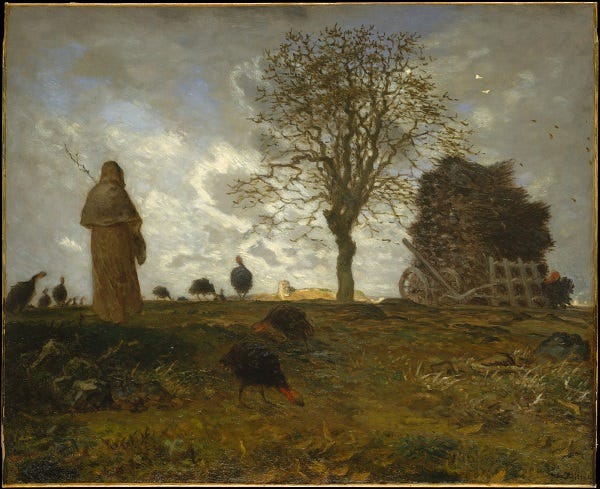
I face something of an imminent moving deadline. The job that brought me to where I live now was always meant to be a temporary position, lasting around five years. Those years are not over yet, but they are getting close, so moving has been on my mind. And that was the obvious frame of interpretation when I read these words: “And I consecrate unto them this land for a little season, until I, the Lord, shall provide for them otherwise, and command them to go hence; and the hour and the day is not given unto them, wherefore let them act upon this land as for years, and this shall turn unto them for their good” (D&C 51:16-17).
I felt this as an acute call to deeper service in the community I will be in for a little season longer, but also as a broader balm for the transient times in which we live. So many things call us away from the world. God’s message is that in the world is exactly where we are supposed to be.
That is literally why God has placed us here, if the book of Genesis is to be believed. “And God said, Let us make man in our image, after our likeness: and let them have dominion” (Genesis 1:26). That word “dominion” is a tricky one, though. We often think of “dominion” over the earth as ruling over the earth. Which is funny, because that is the relationship God also set up between the sun and the day and the moon and the night: “And God made two great lights; the greater light to rule the day, and the lesser light to rule the night” (Genesis 1:16).1 Maybe, then, our job is to have the same relationship with the earth as the sun has with the day.
Seen this way, dominion is, in fact, a call to responsibility. The sun makes the day possible. We are meant to make the earth possible. The day does not serve the sun’s purposes, the sun serves the day’s purposes. And the sun works without respect of persons, making its light to shine on the evil and on the good. “The same is appointed to be the greatest, notwithstanding he is the least and the servant of all” (D&C 50:26).
So our calling on the earth is one of service. Our purpose is to make possible the kind of life God wants for the fish of the sea and the fowl of the air and every creeping thing that creepeth upon the earth. I don’t pretend to know what all that entails, but I do know that we as a collective are not really living up to that charge. For my part, I doubt I could name more than a handful of fish, birds, or insects that are native to the place where I live, let alone describe how to live an a way that helps them thrive.
And that kind of attachment is very difficult in our world of commutes, air travel, job changes, and the constant hypnosis of phones. So many of these things could aid us in the work that God has set before us, but mostly we use them to escape the world where we are to work out our salvation.
Now, of course, none of this is to say that we are to become overly immersed in the world, mistaking the created for the creator. But the only path out of the world is through it. It is true, as the author of the epistle to the Hebrews writes, that Enoch, Noah, Abraham, and the others “confessed that they were strangers and pilgrims on the earth” (Hebrews 11:13). They hoped that this lone and dreary world was not their permanent home. But they also took responsibility for bettering the world even as they tried to transcend it. Noah saved many animals in addition to his family. Enoch built an entire city. It is through Abraham that all the nations of the earth will be blessed. They were pilgrims and strangers, but they were also stewards over the place where God had put them for a little season.
And that is the point of it all. “It is expedient that I, the Lord, should make every man accountable, as a steward over earthly blessings, which I have made and prepared for my creatures. I, the Lord, stretched out the heavens, and built the earth, my very handiwork; and all things therein are mine. But, verily I say unto you, I have appointed unto you to be stewards over mine house, even stewards indeed” (D&C 104:13-14, 57). And if we take that responsibility seriously, one day we will enter into His rest. We may find it strangely similar to the world over which we once labored as stewards. But this time we will settle in fully: “No more a stranger, nor a guest, but like a child at home.”2
I owe this insight to reading Robert Alter’s translation of Genesis 1 and 2, where he uses the familiar word “dominion” to describe the sun and the moon
Hymns—For Home and Church, No. 1014



